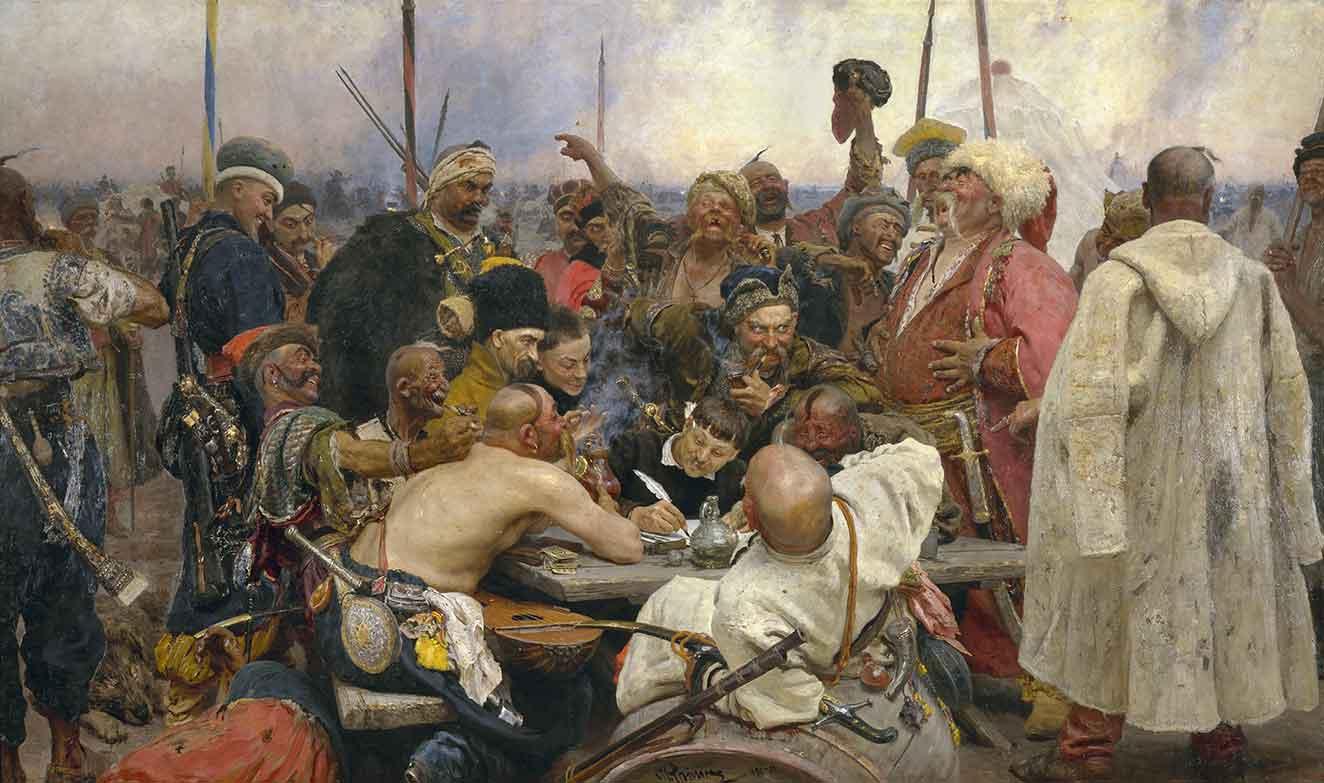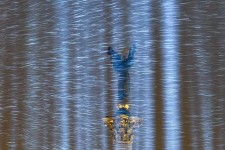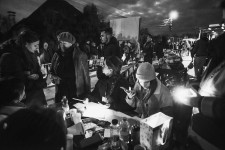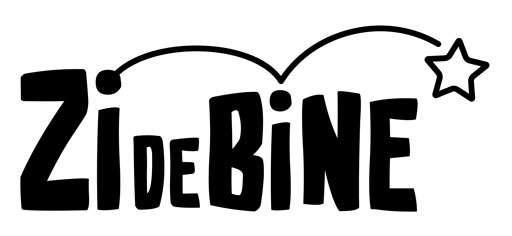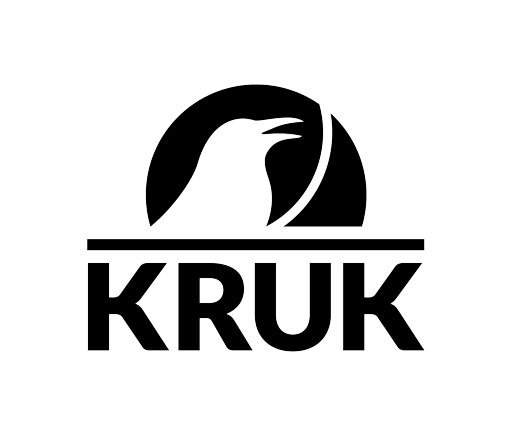Semi-nomadic and semi-militarised, the Cossacks were renowned for their efficiency in battle, democratic local organisation and independent spirit - even if they were under the suzerainty of more powerful nations. Throughout the ages, they sought to defend borders or fight hard battles for others. And many who did not seek them out fled from them. We invite you to discover the Cossacks with the help of a famous exchange of letters (now considered one of the most famous pranks in history).
CREDITS
- Excerpt from Guillaume Apollinaire - La Chanson du mal-aimé - from Alcooluri, published by Paralela 45, translated by Mihail Nemeș (audio in French: LibriVox)
- Carl Maria von Weber - 9 Variations sur un air russe (1814-15), Alexander Paley, piano*
- Jikhav Kozak za Dunaj/Їхав козак за Дунай - Чуєш - голос незалежності*
- Dimitrie Cantemir - Istanbul/ Der makām-ı Hüseynī Sakīl-i Ağa Rıżā (Artist: Jordi Savall/ Alia Vox)
- DakhaBrakha - Kozak
- George Rock & Spike Jones - Minka*
- EMF - Unbelievable
- Les McCann & Eddie Harris - Compared To What?
- B&B project - Cossack
- Beastie Boys - Sabotage
- Buddy Rich Drum Solo - Concert for the Americas, The Dominican Republic, 1982
- The last report of the Russian attack on Serpent Island, in Ukrainian territorial waters, by border policeman Roman Hrybov to the Russian cruiser Moskva (24.02.2022 - https://www.youtube.com/watch?v=MxCzKhKewnM)
- Foo Fighters - The Pretender
*The compositions are based on probably the most famous Ukrainian folk song (Їхав козак за Дунай), written by the poet Semen Klimovski (Семен Климовський). In Germany, the theme became known as Schöne Minka.








